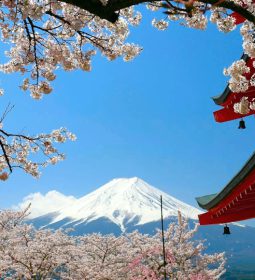Asahi: Japan eyes nuclear subs after U.S. gives OK to S. Korea


The Japanese defense minister said on Nov. 6 that Japan must consider adding nuclear-powered submarines to its fleet, a sentiment spurred by U.S. President Donald Trump’s recent approval for South Korea to build its own.
“The environment surrounding Japan is truly becoming so severe that we must debate whether to continue with diesel as we have, or to opt for nuclear-powered submarines,” Shinjiro Koizumi said during an appearance on a Tokyo Broadcasting System Television Inc. program, referring to the power source for its submarines.
During a U.S.-South Korea summit on Oct. 29, South Korean President Lee Jae-myung requested that the United States permit the supply of fuel for nuclear submarines, citing the need to counter China and North Korea.
On Oct. 30, Trump announced on his social media platform that he had approved South Korea’s construction of nuclear-powered submarines.
In East Asia, China possesses nuclear-powered submarines, and North Korea has also stated its goal of acquiring them as part of a five-year plan announced in 2021.

On the TV program, Koizumi referred to South Korea’s move toward acquiring nuclear submarines, noting, “This is a new development and all the surrounding countries have them.”
MOMENTUM BUILDS FOR DEBATE
At a news conference on Oct. 22, Koizumi stated he would “not rule out any options” when asked about the possibility of Japan employing nuclear submarines.
Koizumi’s latest statement indicates that developments in South Korea are adding momentum to the debate over Japan acquiring nuclear submarines.
Nuclear-powered submarines offer significant operational advantages over conventional diesel-electric submarines, including vastly expanded time deployed underwater and superior maneuverability.
In a September report, a Defense Ministry expert panel tasked with strengthening defense capabilities recommended studying the use of a “next-generation power source”—with nuclear propulsion in mind—for submarines equipped with Vertical Launch Systems (VLS) for counterstrike capabilities, which the Maritime Self-Defense Force is researching.
Furthermore, a coalition government agreement signed on Oct. 20 between the Liberal Democratic Party and Nippon Ishin (Japan Innovation Party) explicitly stated, based on the panel’s recommendation, that it would promote the acquisition of submarines utilizing a “next-generation power source,” a nod to nuclear propulsion.
In both documents, however, direct mention of nuclear-powered submarines was avoided.
COST AND LEGAL HURDLES REMAIN
However, Japan faces numerous challenges, including the enormous costs of developing and operating such vessels with next-generation propulsion systems.
Moreover, Japan’s Atomic Energy Basic Law limits the use of nuclear energy to “peaceful purposes,” which could raise questions of legality concerning possession of nuclear-powered submarines.
A senior ministry official said, “There are many difficult issues, including cost, technology and compatibility with the law, and discussions within the ministry have made little progress.”
(This article was written by Mizuki Sato and Ryo Kiyomiya.)
- Previous Ukrainian Clown turned President: “Everyone in the world is afraid of Trump, not us: Zelenskyy”
- Next Japanese PM Sanae Takaichi: Military attack on Taiwan would justify SDF support
















